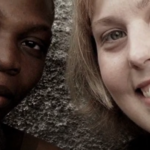South Korea’s parliament has voted to impeach President Park Geun-hye over a corruption scandal.
(News source: BBC World)
The scandal, which has generated huge protests, centres on her relationship with an old friend, and has brought allegations of cult activities, influence-peddling and leaks of classified information.
Ms Choi – who is in custody – is accused of using her presidential connections to pressure companies for millions of dollars in donations to two non-profit foundations she controlled. The claims have even swept up Samsung in the investigation and the electronic giant’s heir-apparent has been quizzed by special prosecutors as a suspect.
The firm is one of eight that has admitted making payments to the foundation – but denies it did so in return for any favours.
President Park is alleged to have been personally involved, instructing Ms Choi and two presidential aides to collect money for the launch of Ms Choi’s foundations, according to prosecution documents submitted to the court.
There are many reasons why the Korean people are angry but a main one is that what was supposed to be free donations has been discovered to be actually bribes.
Donations to non-profit foundations are supposed to be an expression of the perfect gift as argued by Stirrat and Henkel (1997). Donations given to non-profit foundations and other non-governmental organisations (NGOs) are free of all obligation, acts of pure giving and there is no obligation on the recipient. A bribe is exactly the opposite.
As Carrier (1995, p. 147) explains it, “people disapprove of bribes, but that disapproval is not simply a dislike of the intended consequence of bribery, that decisions that should be rendered on impersonal, bureaucratic criteria are instead rendered on personal, calculating criteria… Part of the reason the bribe repels is that it is a prostitution of the present. In bribes people transact presents, but the transaction, the things transacted and the relationship created are sordid… The purpose is the opposite of the spontaneous expression with no thought of return that exists in the ideal present, for it is purely calculated to bind the recipient and ensure a return.”
Although Samsung’s apparent-heir insists that the donations were a perfect gift, the prosecution is bent on proving that they were bribes.
References:
CARRIER, James G. (1995) Gifts and Commodities : Exchange and Western Capitalism since 1700. London: Routledge, digital edition, 2005.
STIRRAT, R. L. and HENKEL, Heiko (1997) “The Development Gift : The Problem of Reciprocity in the NGO World.” In: The Annals of the American Academy of Political and Social Science. Vol. 554 (Nov., 1997) pp. 66-80
Contributed by Maria IsabelMartinez on 16/01/2017






